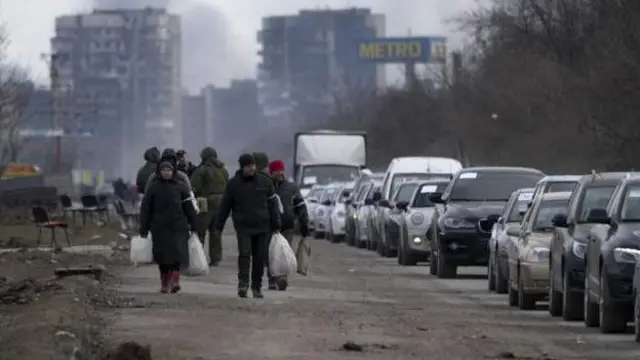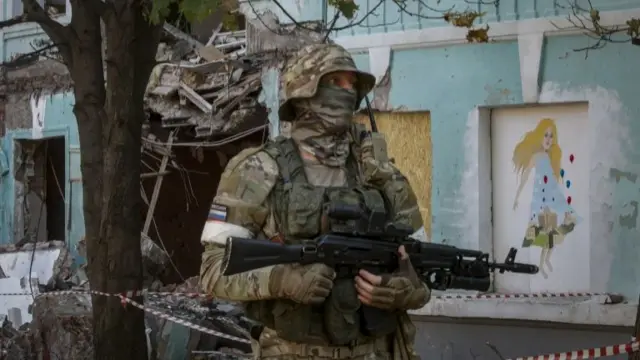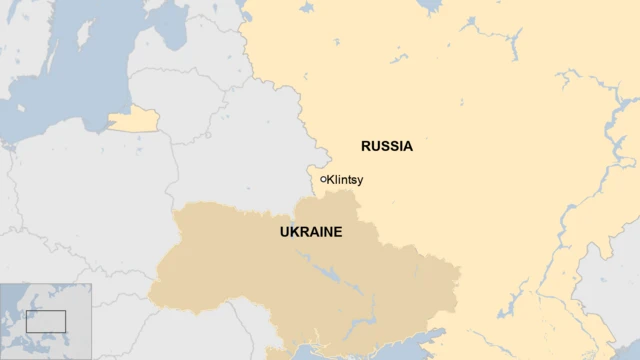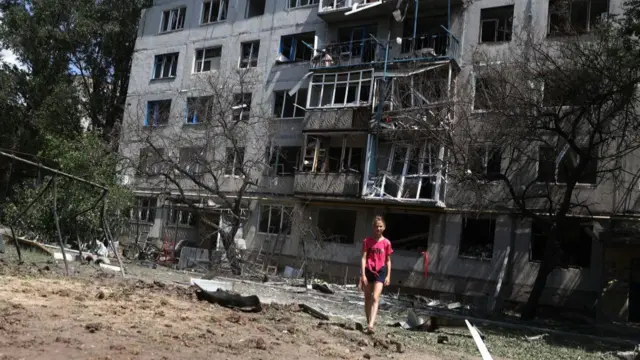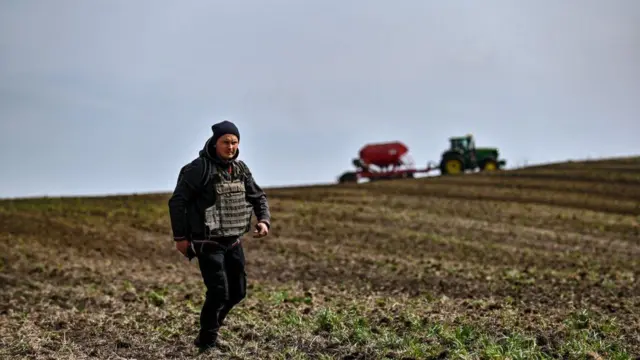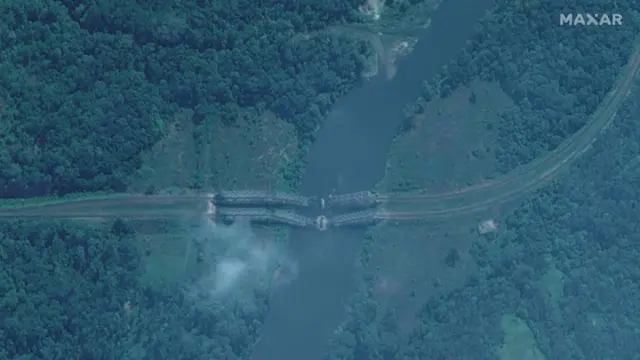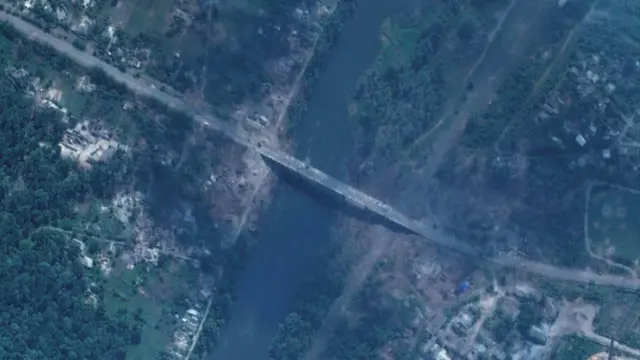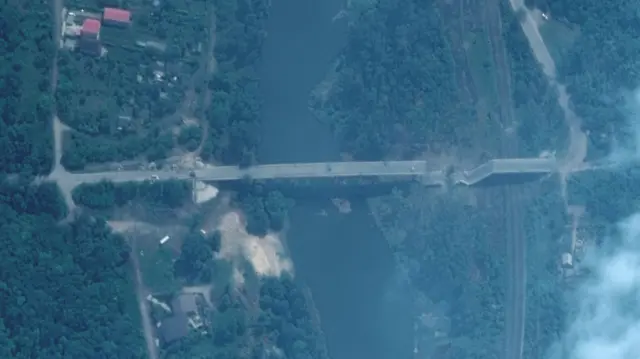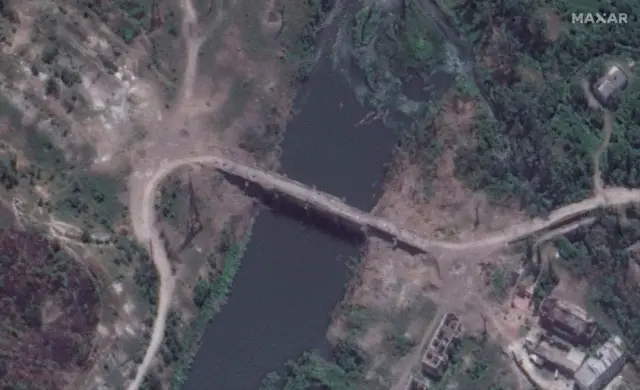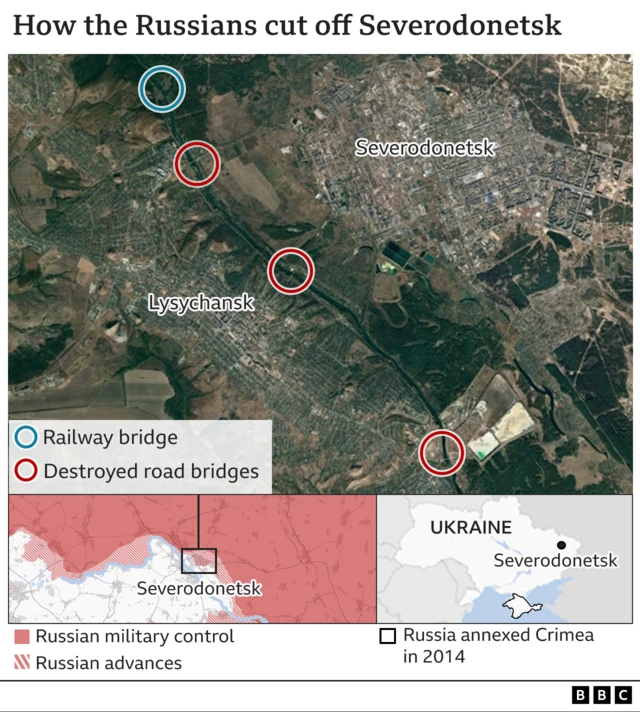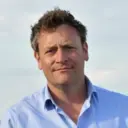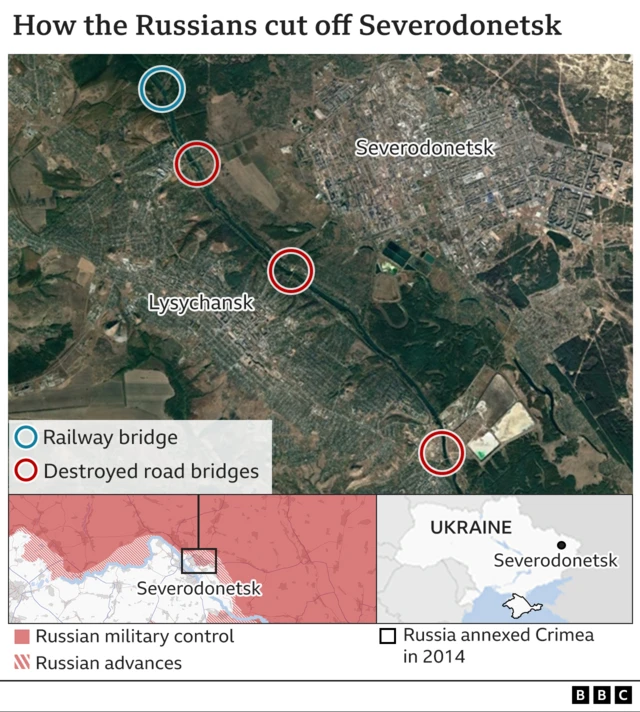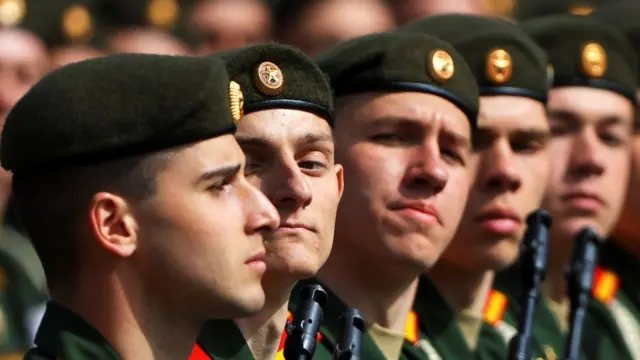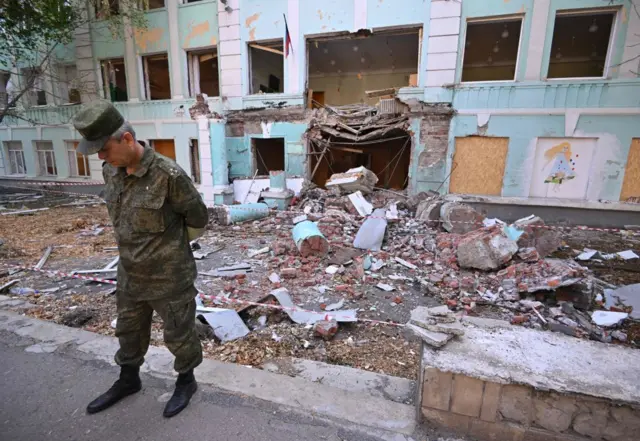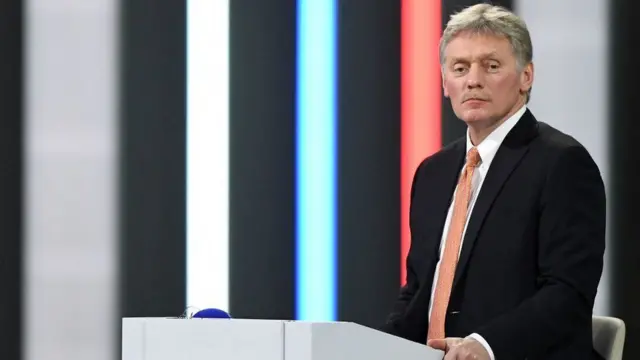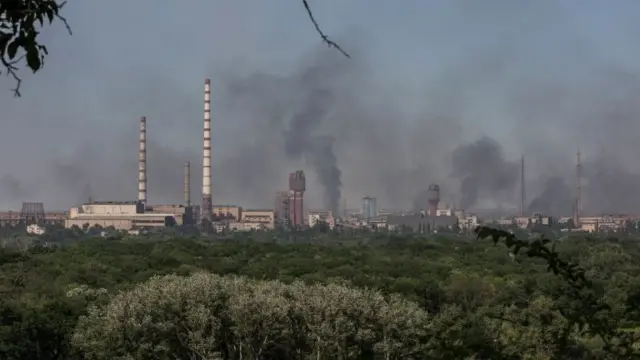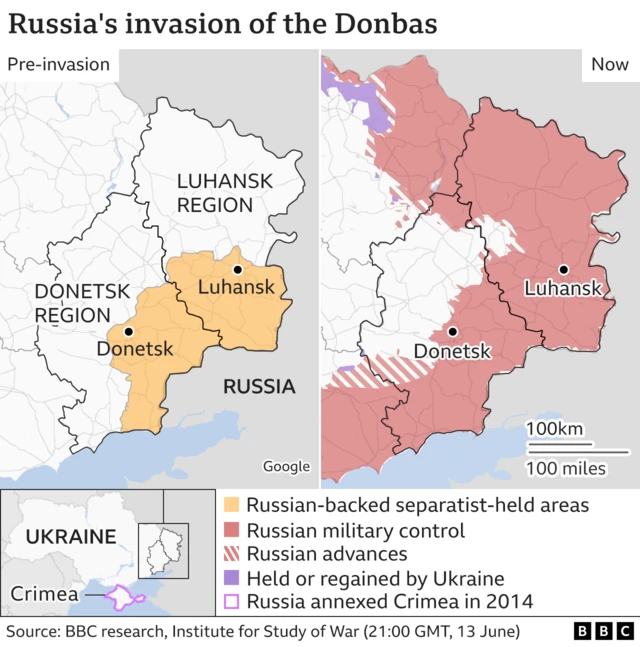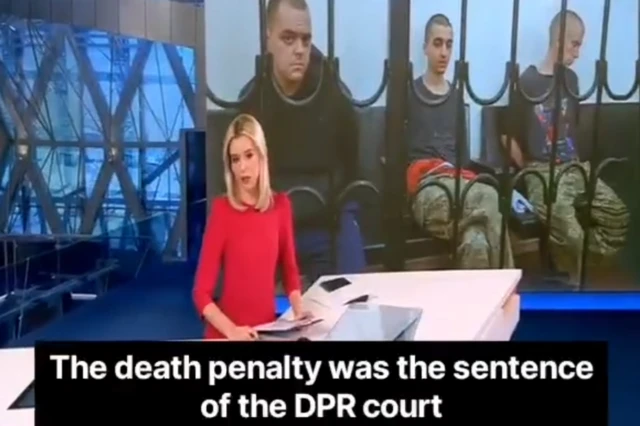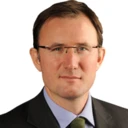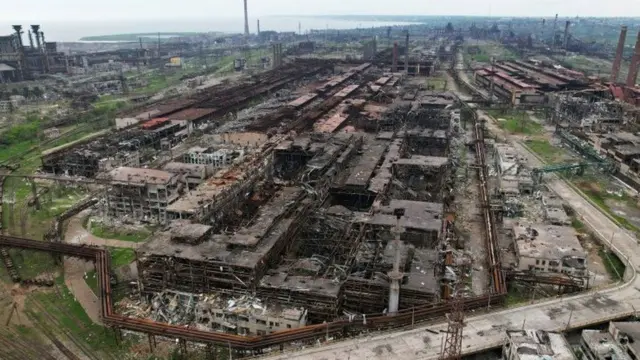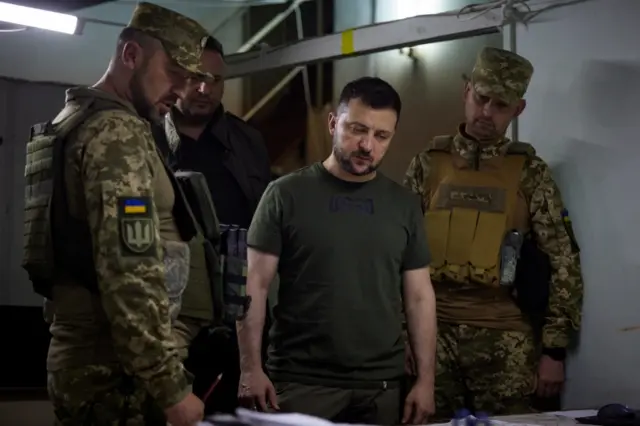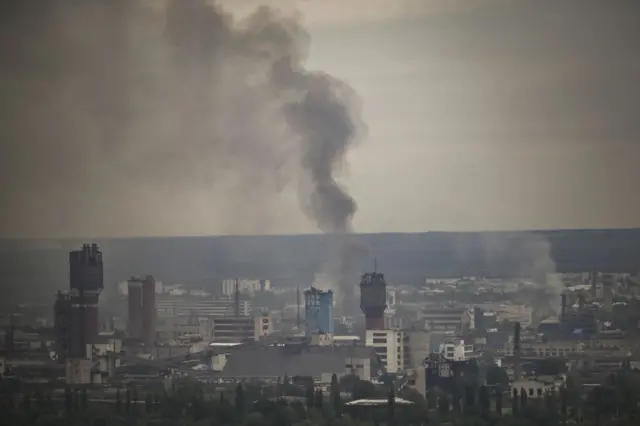Russia bans entry to 29 British journalistspublished at 16:28 British Summer Time 14 June 2022Breaking
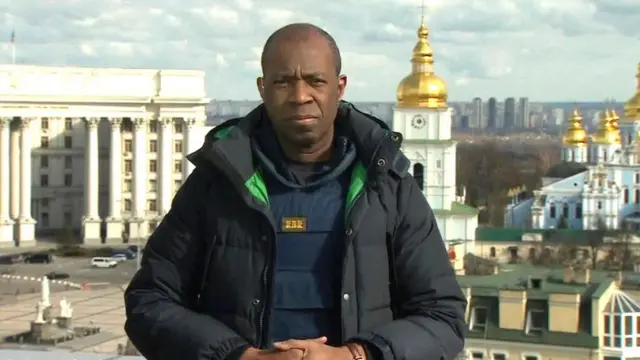
BBC presenter and foreign correspondent Clive Myrie, seen here reporting from Kyiv, is on the list
Russia has banned dozens of British journalists and defence industry figures from entering the country, its foreign ministry says.
Some 29 journalists have been banned, including the BBC's Clive Myrie, Orla Guerin and Paul Adams, all of whom have reported from Ukraine since the war began.
The list also includes the BBC's director general Tim Davie, the editors of the Times, Daily Telegraph, Guardian, Daily Mail, and Independent newspapers, as well as journalists from Sky, Channel 4 and ITV.
Moscow said the move was in response to western sanctions and pressure put on its state-run media outlets.
In April, Russia said it was not planning on banning foreign journalists, saying it was only tightening visa rules from unfriendly countries.
